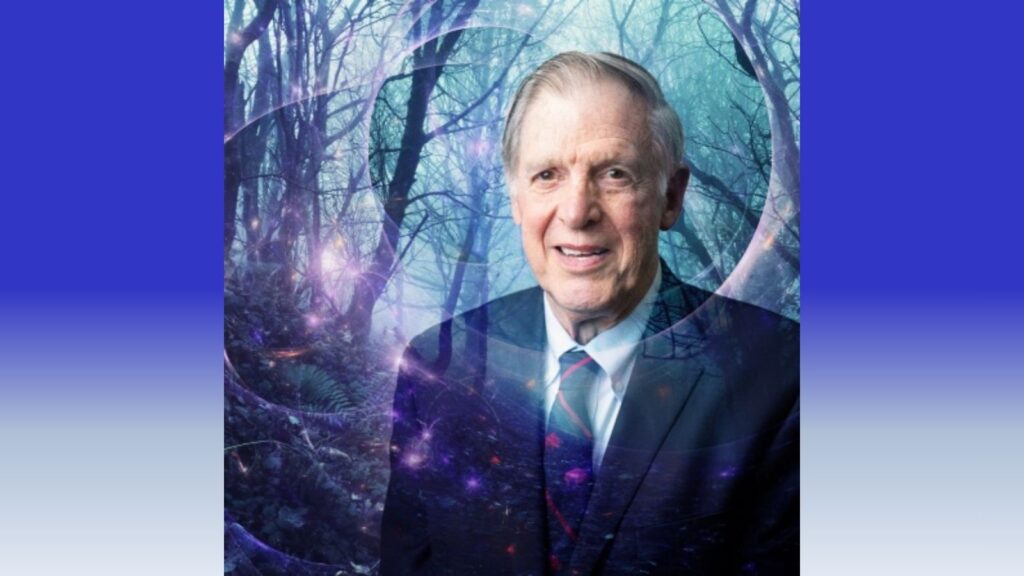
BUFFALO — As a Peace Corps volunteer teaching English in Nigeria, Phillips Stevens witnessed an act of sorcery that blew his mind.
A young boy at Stevens’ school had tried to put a curse on the opposing team in a table tennis match using an iron padlock covered in hyena fur. The act was so chilling to the community that the boy was suspended, and the match had to be replayed.
“I was determined to explore, ‘What did this mean?’ and ‘What kind of thinking is involved here?’” Stevens says.
This led to a 50-year career as a cultural anthropologist at the University at Buffalo, exploring religion, spirituality and the supernatural in cultures across the world.
On the latest episode of Driven to Discover, a University Communications podcast that explores what inspires UB researchers, Stevens shared insights from his new book, “Rethinking the Anthropology of Magic and Witchcraft: Inherently Human.”
Stevens explains to host Tom Dinki why magical thinking isn’t a relic of the past — it’s hardwired into us, a survival strategy that still shapes how we navigate the unknown and process the unthinkable. From common superstitions and religious rituals to conspiracy theories like QAnon, Stevens shows how belief in magic and witchcraft persists, and what makes it inherently human.
“I had come to realize … that the concepts of magic and of witchcraft constitute fundamental human ways of thinking,” says Stevens PhD, associate professor emeritus in the UB Department of Anthropology. “I was finding the same beliefs in many different cultures around the world, and I came to the conclusion that what we’re dealing with here are fundamentally human beliefs.”
One of Stevens’ principles of magic is the belief that everything in the cosmos — both spiritual and material, as well as past, present and future — has a power within it and is interconnected. As such, a magical act involves projecting this power between things along invisible pathways, typically through words and symbols.
Listen to the episode on Spotify
Listen to the episode on Apple Podcasts
Listen to the episode on Buzzsprout
Witchcraft is different, Stevens says. It’s an inherent ability held only by a select group of people to do a variety of fantastical — and terrible — things. The witch is not a universal creature, but societies without witches nevertheless place similar fears and fantasies in other supernatural beings.
Stevens says the universality of magic and witchcraft suggests it’s rooted into our evolutionary biology, and may have been critical to our survival as species.
“A fundamental function of magical thinking is to establish for the individual a sense of control which gives that person a sense of confidence in a vast, confusing and indifferent world,” he says. “[Witches] are the embodiments of death — indeed, violent, bloody death. … The witch provides the idea of the scapegoat — someone else to blame for some social misfortune.”
Stevens notes that many of these fantastical elements can be found in modern conspiracy theories, from the Satanic panic of the 1980s to the QAnon movement seen in the last few years.
While belief in the supernatural has been replaced by scientific knowledge over the centuries, Stevens doesn’t think it will ever fully disappear.
“It serves positive functions in people. It gives people confidence. It answers questions,” he says. “The average person has a limited knowledge of science and technology … but spiritualism and supernatural beliefs serve us a totally separate function.”
Ultimately, Stevens argues that supernaturalism is outside of science. He notes that Albert Einstein described quantum entanglement — the idea that very remote subatomic particles nevertheless can have an effect on each other — as “spooky action at a distance.”
“This borders on what, for me, is the mystical. It may very well be that magical thinking is based in fact. There may be ultimately some evidence for remote connections between things, just as in the case of quantum entanglement,” he says. “But for now, it is outside of science, and it cannot be tested by the methods of science. So we have to recognize that we can neither prove nor disprove the existence of God, or beliefs in magical action in the universe.”

